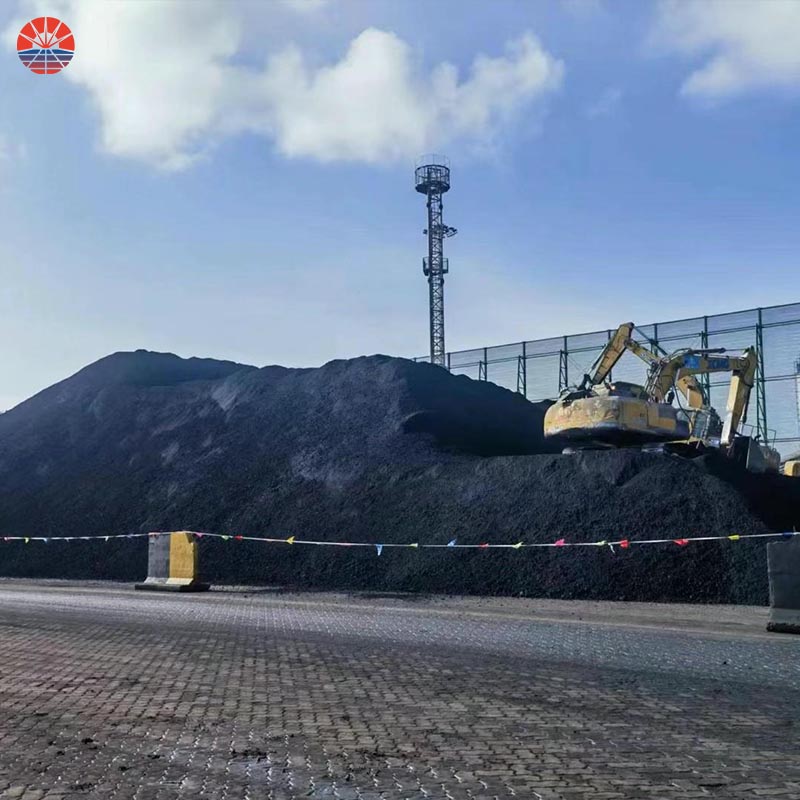The Role Of Using Petroleum Coke In Aluminum Plant
The primary role of using petroleum coke (petcoke) in an aluminum plant is for the production of carbon anodes. Carbon anodes are essential components used in the aluminum smelting process, specifically in the Hall-Héroult process, which is the most common method for extracting aluminum from its ore, alumina (aluminum oxide).
Here's how petcoke is utilized in the aluminum plant:
Carbon Anodes Production: Petcoke is processed to manufacture carbon anodes, which are rectangular blocks or rods made of baked carbon. These anodes serve as the positive electrode during the aluminum electrolysis process.
Aluminum Electrolysis: In the Hall-Héroult process, alumina is dissolved in a molten cryolite bath inside an electrolytic cell. A direct electric current is passed through the cell, causing electrolysis to occur. During this process, oxygen is released at the carbon anodes, and aluminum ions are reduced at the cathodes, forming molten aluminum metal.
Electrical Conductivity: Carbon anodes made from petcoke have excellent electrical conductivity, allowing them to efficiently transfer electrical current to the alumina in the electrolytic cell. This is a critical function as the current flow is necessary for the aluminum production process.
Carbon Consumption: As the aluminum is produced, the carbon anodes are gradually consumed. The anodes play a crucial role in the overall cell reaction and are replaced periodically as they are depleted.
High Carbon Content: Petcoke's high carbon content is a key factor in its suitability for anode production. Carbon anodes must have a high carbon content to effectively conduct electricity and facilitate the reduction of alumina to aluminum metal.
Low Sulfur Content: Petcoke typically has lower sulfur content compared to other carbon sources, which is beneficial for producing cleaner aluminum with reduced sulfur impurities.
The choice of carbon anodes, whether made from petcoke or other carbonaceous materials, can influence the efficiency, performance, and environmental impact of the aluminum production process. The aluminum industry continually seeks to optimize anode formulations, improve energy efficiency, and minimize environmental impacts associated with carbon consumption and greenhouse gas emissions during aluminum smelting. As a result, there is ongoing research and development to explore alternative carbon sources, recycling options, and more sustainable anode materials to enhance the overall sustainability of aluminum production.
Benefits Of Using Petroleum Coke In Aluminum Plant
The use of petroleum coke (petcoke) in an aluminum plant offers several benefits, particularly in the aluminum smelting process. Here are some of the advantages of using petcoke in an aluminum plant:
High Carbon Content: Petcoke is a carbon-rich material, which makes it an excellent source of carbon for the aluminum smelting process. During aluminum smelting, carbon anodes are used in the electrolytic cells to conduct electricity and facilitate the reduction of alumina (aluminum oxide) to aluminum metal. Petcoke's high carbon content makes it an ideal material for producing these carbon anodes.
Lower Sulfur Content: Compared to some other carbon sources, such as coal, petcoke typically has lower sulfur content. This is important because sulfur impurities can negatively impact the quality of aluminum produced, leading to issues like increased brittleness.
Improved Anode Performance: The use of petcoke in the production of carbon anodes can result in improved anode performance, leading to more efficient and stable aluminum smelting operations.
Cost-Effectiveness: Petcoke is often more cost-effective than some other carbon sources used in aluminum smelting, such as anthracite coal. The availability of petcoke as a byproduct of the oil refining process can help reduce overall production costs for aluminum manufacturers.
Stable Supply: Petcoke production is closely linked to the petroleum refining industry, ensuring a consistent and stable supply for aluminum plants.
Reduced Greenhouse Gas Emissions: Aluminum smelting is an energy-intensive process, and using petcoke as a source of carbon can lead to reduced greenhouse gas emissions compared to alternative carbon sources like coal.
While the use of petcoke in aluminum plants offers these benefits, it's essential to be mindful of the environmental and health considerations associated with its combustion. The burning of petcoke releases carbon dioxide (CO2) and other pollutants, contributing to climate change and air pollution. Therefore, aluminum manufacturers are increasingly seeking to adopt more sustainable and environmentally friendly practices, including exploring cleaner energy sources and implementing energy efficiency measures to reduce their overall carbon footprint. Additionally, efforts are being made to develop carbon-neutral or low-carbon aluminum smelting technologies to further mitigate the environmental impact of the aluminum industry.












